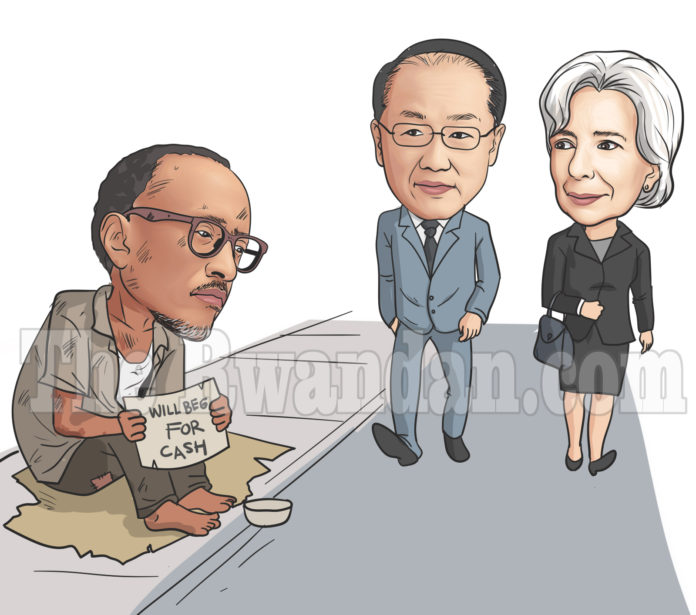The most important point of this article is that statistics were manipulated and that the World Bank report questioning success was suppressed.
That is the real story about Rwanda:
1. Foreign investments are among the lowest in East Africa. Even the Chinese won’t touch Rwanda with a stick. It’s because they know that it’s a house of cards.
2. Domestic private investment is almost non-existent and the private sector is almost 100% dominated by RPF controlled conglomerates, such as Crystal Ventures or Tri-Star Capital. Trying to do business outside of the RPF risks getting you killed or exiled, as Tribert Rujigiro and Assinapol Rwigara can testify to.
3. The Commission you mention was not set up to improve the business environment, but to improve in the “Doing Business” ranking. There is a big difference! A company can get registered in 24hours, but if you’re not connected to the RPF, you won’t get approved, or you’ll get harassed or killed. That’s not picked up by the ranking…
4. Rankings matter a great deal to the regime for the simple reason that 40% of its budget comes from aid money. The government is therefore obsessed with looking good to keep its donor darling status, so that they can stay in power. This is the reason why you have 64% women in parliament and no plastic bags. They know donors love that kind of stuff! All easy things to do when you have a totalitarian dictatorship (ever wondered how it took Rwanda less than 10 years to achieve what Scandinavian countries have achieved in 50?).
5. Kigali’s cleanliness is a key part of this PR strategy, because most westerners don’t see much more than the road from the airport to their hotel. In a country with a GDP per capita of just USD 600, cleanliness and absence of slums is usually a marker of dictatorship, rather than of success. Yangoon and Pyongyang are also remarkably clean. Kigali is a Potemkin village!
6. This PR strategy guides almost every decision. E.g. Kigali convention centre has no economic rationale, and no private company would be crazy enough to invest in it. Also, there’s not economic rationale for the recent decision to make buses go cashless, given that (a) 99% of the population don’t have smartphones, and (b) the cost of labour is tiny, so no need to get rid of bus conductors. It’s all just for show!
7. Crucially, Rwanda still has an almost exclusively extractive economy. People become rich through connections with the RPF, and through Congolese minerals. No Rwandan has ever got rich (in Rwanda) by inventing something or setting up a successful business. This sets Rwanda apart from other African success stories, such as Ethiopia or Nigeria.
8. Rwandan economic growth is almost exclusively concentrated in the construction sector and urban services. This is basically money laundering and recycled aid money. Take out Congolese minerals and aid money and Rwanda’s economy collapses like a house of cards. Again this sets it apart from Ethiopia, Kenya, Nigeria, etc.
9. There are growing and worrying indications that the model is faltering. From recent devaluation of the Rwandan franc to IMF bailout, as well as suppressed reports of famines in parts of Rwanda due to El Nino. Most worrying of all is the apparent failure of the agricultural policy of forced monocropping and land consolidation. This is particularly worrying, because of the parallels with 1990-93, when the failure of the same agricultural reform is thought to have been a major contributing factor to instability.
10. Corruption: I’m surprised that this still is part of the discourse, after the Panama paper revelations that showed that Ndahiro and Sekoko (known fronts for Kagame) had accounts in Panama. True, Rwanda has been successful at wiping out petty corruption. Because (a) it helps the PR cause, (b) has no value for higher up regime members and (c) is easy to do in a totalitarian dictatorship. But the head of transparency international Rwanda got killed a few years ago when investigating high level corruption (the type that has now shown up in the Panama papers).
11. Kagame is no Lee Kwan Yew. For a starter, Lee Kwan Yew used a Chinese meritocratic mandarin-style civil service to build strong institutions regardless of ethnicity. In Rwanda, you don’t stand a chance if you’re not a Ugandan Tutsi. In Rwanda, there are no institutions to speak of since the judiciary, legislative power and all the rest leads right up to the president. If Kagame dies, the country collapses like a house of cards, just as it did under Habyarimana.
12. Hutus and Tutsis don’t live in harmony. They’re just banned from talking about the disharmony. Rwanda is no more harmonious than Iraq under Saddam or Yougoslavia under Tito. Burundi’s Tutsi dictatorship also banned ethnic labels in the 1970s and then went on to massacre 100,000 Hutus…
13. The government is not interested in reconciliation. If it were, the gacaca courts would have tried both Interhamwe and RPF crimes. And Kizito Mihigo would not be in prison for singing about forgiveness. The government is interested in one thing only: staying in power so that they can keep extracting as many resrouces as possible before the place blows up again.Conclusion, Kagame is no Lee Kwan Yew, and Rwanda is no Singapore. A better analogy would be Rwanda under Habyarimana…
Anonymous































































